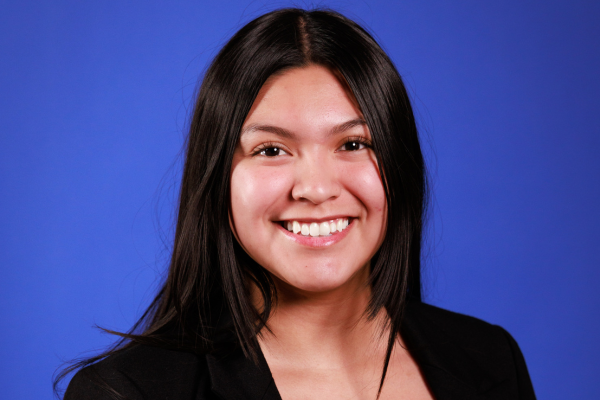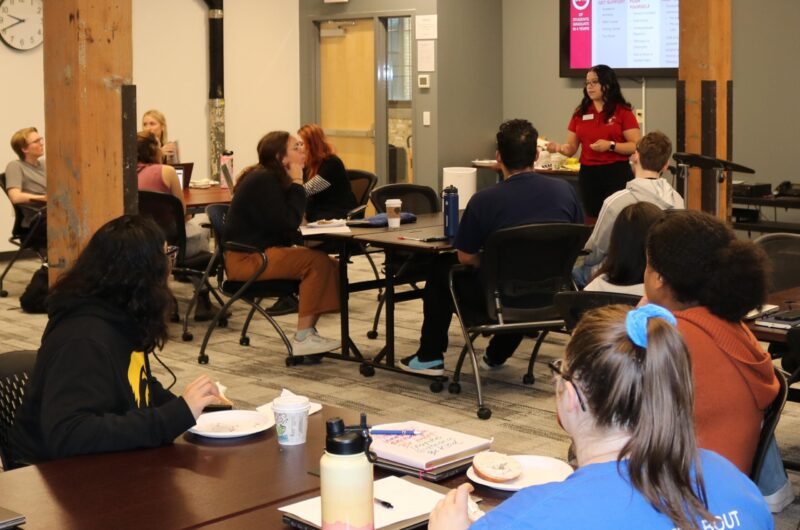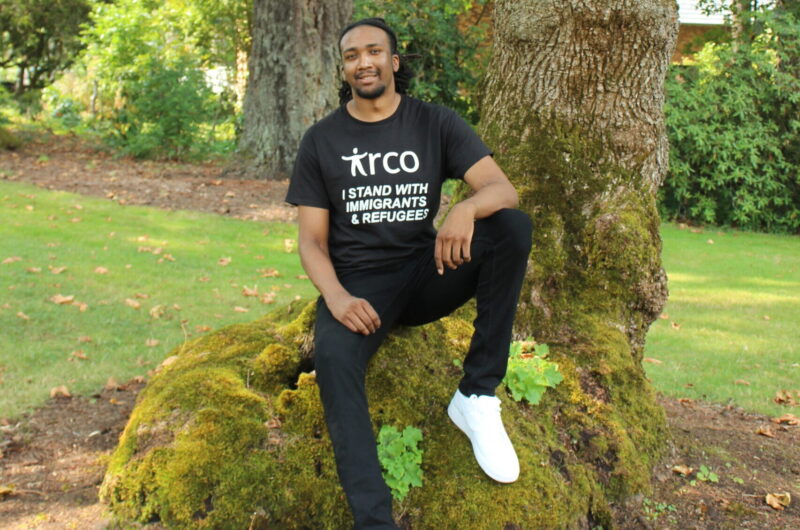Gen Z is the most diverse generation of college students in U.S. history, one that values meaningful academic programs and support services like financial literacy and mental health. More specifically, for students from low-income and first-generation backgrounds, a college degree can considerably improve career opportunities, economic earnings and social mobility. [1] Throughout their undergraduate career, low-income and first-gen students face different barriers than their higher-income peers, including lack of academic preparedness, financial stability and self-efficacy. [2] To accommodate this new generation of students, higher education institutions and community-based organizations have established alternative theories of learning and instruction.
At College Possible, we pair students from low-income backgrounds with AmeriCorps members who serve as access and success coaches. The training and development of our coaches is grounded in constructivism and self-regulated learning; the idea that learning is achieved through active construction of knowledge and is contingent upon the learner’s ability to interpret and communicate information to reflect their personalized learning objectives and expectations. [3] This belief has helped inform our innovative approach to near-peer coaching and high-touch student support. With three coaching domains focused on academic success, financial management and personal well-being, College Possible has created a program with students from low-income and first-generation backgrounds in mind, recognizing that each and every one of them has their own unique set of goals, challenges and opportunities.
In practice, the College Possible coaching model is asset based, affirming the individual identities, experiences and strengths of students from low-income backgrounds. Through a relationship that provides support and inspires growth, the student and coach work together to help the student enroll in their best-fit institution and earn a college degree. All College Possible coaches come to our organization with a variety of backgrounds, professional training and specialized skills. A constructivist and self-regulated learning framework enables coaches to identify the aspects of coaching where they feel exceptionally capable, and where they need to learn more in order to support their students to the best of their abilities. Through collaboration, self-reflection and project-based learning, coaches have the opportunity to channel and grow their own strengths to address students’ difficult questions and situations.
As higher education institutions develop their fall 2020 COVID-19 student support plans, it is more important than ever that they are able to meet their students where they’re at – whether they return to campus or continue to be fully remote. In a survey of 187 two- and four-year college presidents, among their most pressing concerns is the profound impact of the pandemic on low-income and underrepresented students in both the short term and long term. [4]
Student success programs, like College Possible, are prepared to implement their training in constructivism and self-regulated learning to ensure those students thrive in their new educational environment. By extending the reach of on-campus services and actively listening to students’ personal, financial and academic goals, College Possible is confident in our program’s ability to adapt to students’ and institutions’ changing needs during this unprecedented time.
[1] The Chronicle of Higher Education: Executive Summary (2018, September). The New Generation of Students: How colleges can recruit, teach, and serve Gen Z. The Chronicle of Higher Education
[2] Falcon, L. (2015, June). Breaking Down Barriers: First-Generation College Students and College Success. The League for Innovation in the Community College.
[3] Kundi, G.M., Nawaz, A. (2010, June 28). From objectivism to social constructivism: The impacts of information and communication technologies (ICTs) on higher education. Journal of Science and Technology Education Research.
[4] Lederman, D. (2020, April 27). Low-Income Students Top Presidents’ COVID-19 Worry List. Inside Higher Ed.
By Sarah Calire



